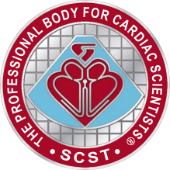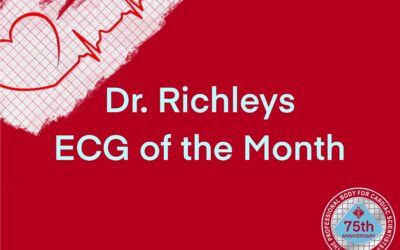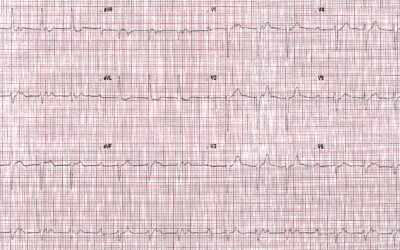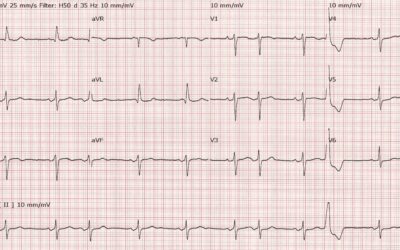About the “ECG of the month”
Every month we’ll post an ECG trace that we invite you to “diagnose”. Click on the ECG trace image and then you submit your explanation by making a comment on the post. Your comment won’t appear until it has been approved so don’t worry if you don’t see it immediately.
Alternatively, you can email your thoughts and analysis to comms@scst.org.uk

Dr Richleys ECG of the Month – December 2023
I was recently sent this ECG and asked what I thought the rhythm was. The ECG was recorded from a 55-year-old patient who had recently undergone aortic valve and root replacement following infective endocarditis. I think I’ve worked out what’s going on but what do YOU...
Dr Richleys ECG of the Month – November 2023
I have been trawling my archives and come up with what I think is a challenging case involving three ECGs. Personal and clinical information has been minimised in order to preserve patient confidentiality and anonymity. Figure 1 is the initial ECG of a young boy, and...
IT’S BACK!!!! Dr Richleys ECG of the Month
These ECGs (figures 1 and 2) were recorded during an exercise tolerance test on a man who was being investigated for an episode of collapse and paroxysmal tachycardia. What is the explanation for the transient change in QRS morphology? I wish to thank Debbie Wilson...
Dr Richleys ECG of the Month – February 2023
Last month’s ECG was quite simple, so to make up for it this month’s is perhaps a bit tricky. Once again, it’s the rhythm I’m interested in, so what exactly is going on? Any answer should account for the ventricular irregularity and the relationship, if any, between P...
Dr Richleys ECG of the Month – January 2023
Let’s start the year with an easy one. The quality isn’t as good as I’d like but it’s good enough for answering the question: what is the rhythm? This is one that might not be obvious at first glance but a careful analysis should yield the correct answer. Answer This...
Dr Richleys ECG of the Month – December 2022
Here's your December edition of Dr Richley's ECG of the Month. I came across this ECG recently and although I don’t know anything about the patient, I don’t think that’s vitally important for interpreting the tracing. I have to admit that it was the P waves that...




